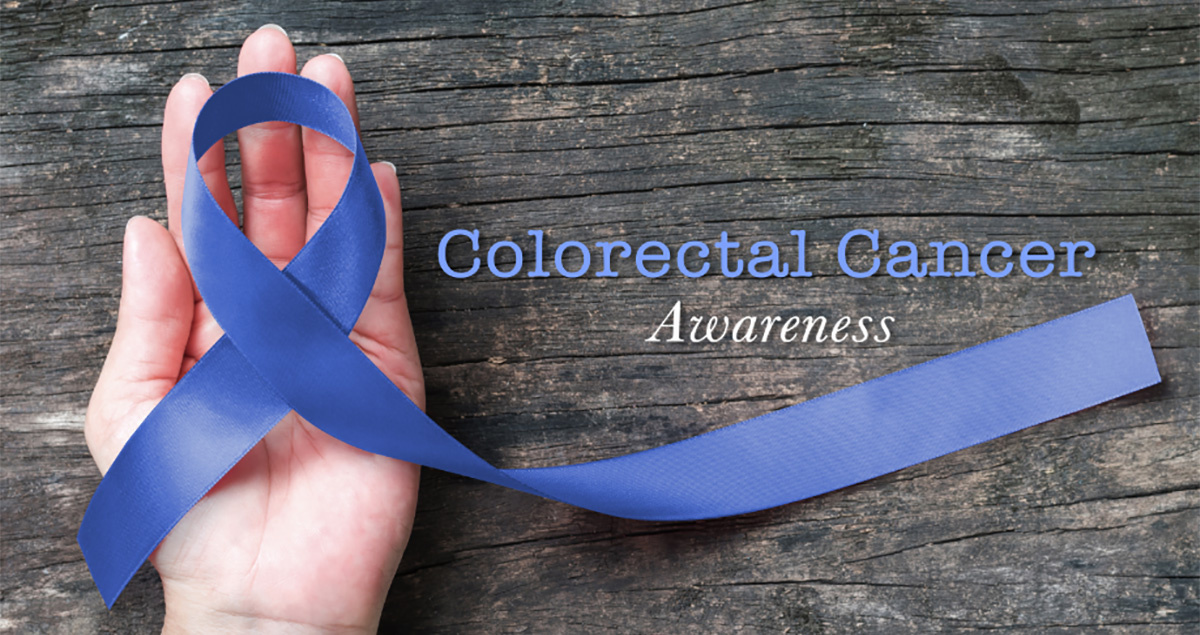Colorectal cancer is the third most common cancer diagnosis among men and women in the United States. The American Cancer Society estimates that there will be about 145,000 new cases this year. If caught in the local stage (the cancer has not spread), the five-year survival rate of colorectal cancer is about 90 percent, so it’s important to know the facts. Here are some common misconceptions and myths that you may have heard.
Myth #1: Colorectal cancer only happens to older people.
It’s true that colorectal cancer is more common in people over 50, but younger adults can get it. In fact, health experts are seeing an alarming increase in rates of colorectal cancer among young and middle-aged adults. No one knows why it’s increasing for young people, but the American Cancer Society says it is likely due to the complex relationship between colorectal cancer and obesity, unhealthy diet, and lack of physical activity.
Myth #2: You only need to be screened for colorectal cancer if you have a family history of it.
The American Cancer Society U.S. Preventive Services Task Force recommends that everyone should get screened for colorectal cancer starting at age 45. Previously, the age recommendation was 50. However, people who have an immediate family member with colorectal cancer, such as a parent or sibling, are at increased risk and should talk to their doctor about whether to start screening earlier.
Myth #3: Colorectal cancer is not treatable.
There are more treatment options than ever before for colorectal cancer, and the survival rates have been improving for several decades because of screenings and Increased awareness. In fact, colorectal cancer is one of the most treatable cancers if caught early. The exact treatment depends on several factors, including the type and stage of cancer, and may include surgery, chemotherapy, radiation, targeted therapy, and immunotherapy.
Myth #4: Getting a colonoscopy is a horrible experience.
Getting a colonoscopy is not nearly as bad as it may seem. Some people say that “bowel prep,” to clean out the colon the day before the test, is the most uncomfortable part. Preparation generally involves following a clear liquid diet and taking a solution 24 hours before the procedure to completely empty the bowels and stomach. The test itself is painless and over quickly, typically around 30 minutes.
Myth #5: There’s nothing you can do to prevent colorectal cancer.
There’s not a sure way to prevent colorectal cancer, but there are things you can do to lower your risk. Maintain a healthy weight and avoid gaining weight around the midsection. Increase your level of physical activity. Limit processed meats, and eat more fruits and vegetables. Quit smoking.
For assistance with quitting smoking or the use of tobacco products, call the national Quit Line at 1-800-QUIT-NOW, to be connected to your state's quitline. Trained professionals are available 24 hours every day to help you.
What are the symptoms and causes of colorectal cancer?
Bradley H. Bennett, MD, is the Medical Director for Colon Rectal Surgery at Holy Cross Hospital and Holy Cross Germantown Hospital. He says that bleeding is the most common symptom that causes patients to come in for an evaluation. They may also experience changes in bowel habits, feel abnormalities in their abdomen, and occasionally, weight loss. Dr. Bennett says that colon cancer is most common in those with a family history of the disease, but that is not always the case.
Get Screened for Colorectal Cancer
Holy Cross Health is affiliated with highly skilled gastroenterologists, colorectal surgeons, and oncologists who can review your health care risks and talk with you about cancer screenings. In 2018, U.S. News and World Report ranked Holy Cross Hospital as high-performing —the highest rating possible — in colon cancer surgery. To find a colorectal surgeon, search the physician directory.
Resources
Watch Our Experts Discuss Colorectal Cancer
Learn about early screening, diagnosis and treatment options for colorectal cancer.
Holy Cross Health presents the information in this blog as a resource for our community. It is not intended to replace professional medical advice or to endorse any particular entity or service. Personal health problems should be brought to the attention of the appropriate health professionals.


